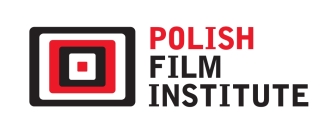The Hidden Lure of Cinema From the Times Rightly Bygone
Teresa Rutkowska
tz.rutkowska@gmail.comInstitute of Art, Polish Academy of Sciences (Poland)
https://orcid.org/0000-0002-2888-9206
Abstract
A review of Justyna Jaworska’s book “Piękne widoki, panowie, stąd macie”. O kinie polskiego sockonsumpcjonizmu [“Beautiful Views, Gentlemen, You Have From Here”: About the Cinema of Polish Soc-consumptionism] (2019), which was awarded the Bolesław Michałek Award by the monthly Kino for the period 2018-2019. Jaworska analyzes films made in the early 1970s, in the era of Edward Gierek, which was regarded as a time of relative prosperity that awakened in Polish society the aspirations to improve the material situation. Jaworska looks for a reflection of these trends in films that were considered unsuccessful (and “weak” in Vattimo’s meaning of the word) at the time and found themselves outside the canon of works that were marked in the social consciousness. Her analyses made through the prism of current cultural diagnoses – as the reviewer points out – are brilliant, excellently written and penetrating, although sometimes controversial. The key theme of these films is the existential failure that most of the protagonists have experienced.
Keywords:
Polish cinema, seventies, socialist realism, soc-consumptionismReferences
Bendyk, E. (2009). Miłość, wojna, rewolucja. Szkice na czas kryzysu. Warszawa: Wydawnictwo W.A.B.
Google Scholar
Jaworska, J. (2019). „Piękne widoki, panowie, stąd macie”. O kinie polskiego sockonsumpcjonizmu. Kraków: Towarzystwo Autorów i Wydawców Prac Naukowych „Universitas”.
Google Scholar
Marszałek, R. (1974). Pamflet na kino codzienne. Kraków: Wydawnictwo Literackie.
Google Scholar
Marszałek, R. (2006). Kino rzeczy znalezionych. Gdańsk: słowo/obraz terytoria.
Google Scholar
Mętrak, K. (1974). Ocalić od zapomnienia. Kino, 9.
Google Scholar
Michałek, B. (2002). Ambasador polskiego kina. Wspomnienia i artykuły. Kraków: Wydawnictwo Rabid.
Google Scholar
Nyczek, T. (2008). Salon Niezależnych. Dzieje pewnego kabaretu. Kraków: Społeczny Instytut Wydawniczy „Znak”.
Google Scholar
Ronduda, Ł., Piwowarska, B. (red.) (2008). Polish New Wave. The History of the Phenomenon That Never Existed / Polska Nowa Fala. Historia Zjawiska, którego nie było. Warszawa: Centrum Sztuki Współczesnej i Instytut Mickiewicza.
Google Scholar
Sobolewski, T. (2000). Dziecko Peerelu. Esej, dziennik. Warszawa: Wydawnictwo Sic!
Google Scholar
Authors
Teresa Rutkowskatz.rutkowska@gmail.com
Institute of Art, Polish Academy of Sciences Poland
https://orcid.org/0000-0002-2888-9206
Former editor-in-chief of Kwartalnik Filmowy, translator, now retired. She publishes book reviews in the monthly magazine Nowe Książki. Her areas of interest include film narration and the relationship between image and word in film.
Statistics
Abstract views: 280PDF downloads: 218
License
Copyright (c) 2020 Teresa Rutkowska

This work is licensed under a Creative Commons Attribution-NonCommercial-NoDerivatives 4.0 International License.
The author grants the publisher a royalty-free non-exclusive licence (CC BY 4.0) to use the article in Kwartalnik Filmowy, retains full copyright, and agrees to identify the work as first having been published in Kwartalnik Filmowy should it be published or used again (download licence agreement). The journal is published under the CC BY 4.0 licence. By submitting an article, the author agrees to make it available under this licence.
In issues from 105-106 (2019) to 119 (2022) all articles were published under the CC BY-NC-ND 4.0 licence. During this period the authors granted a royalty-free non-exclusive licence (CC BY-ND 4.0) to use their article in „Kwartalnik Filmowy”, retained full copyright, and agreed to identify the work as first having been published in our journal should it be published or used again.
Most read articles by the same author(s)
- Teresa Rutkowska, Editorial , Kwartalnik Filmowy: No. 99 (2017): Tricks, Special Numbers, Attractions
- Teresa Rutkowska, Madmen and Unknown Soldiers , Kwartalnik Filmowy: No. 92 (2015): Polish Cinema and Politics
- Teresa Rutkowska, Editorial , Kwartalnik Filmowy: No. 91 (2015): Film Between Pop Music and Pop Culture
- Teresa Rutkowska, Table of Contents , Kwartalnik Filmowy: No. 91 (2015): Film Between Pop Music and Pop Culture
- Teresa Rutkowska, Table of Contents , Kwartalnik Filmowy: No. Special Issue (2013): Polish Film Scholars on Polish Cinema
- Teresa Rutkowska, Table of Contents , Kwartalnik Filmowy: No. 123 (2023): Pace and Rhythm
- Teresa Rutkowska, Editorial , Kwartalnik Filmowy: No. 100 (2017): On Celebrating
- Teresa Rutkowska, Table of Contents , Kwartalnik Filmowy: No. 95 (2016): Transnational Dimension of Polish Cinema
- Teresa Rutkowska, Table of Contents , Kwartalnik Filmowy: No. 101-102 (2018): European Cinema of 21st Century
- Teresa Rutkowska, Table of Contents , Kwartalnik Filmowy: No. 100 (2017): On Celebrating











